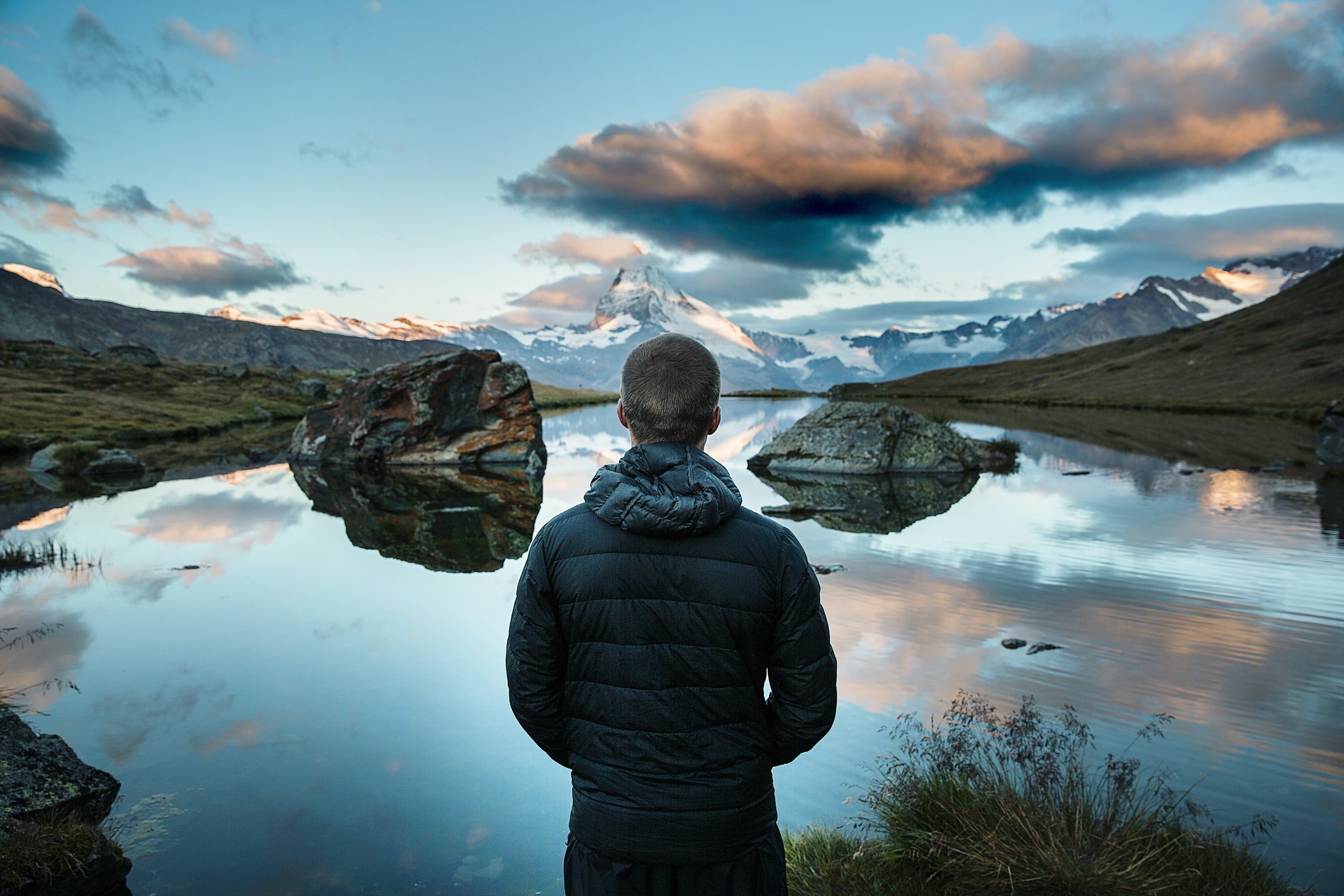By Lyz Hart, LPCC
An Awareness of Silence
Last winter, I was wrapping up one of the most turbulent and challenging years of my life, living through a pandemic, cultural and political unrest, economic and environmental decline all while trying to be a helpful and compassionate therapist. I decided to take myself on a quick trip to Moab, Utah because I had never been and desperately needed to get out of town and into nature. My intention for this trip was to feel revitalized and more connected to myself and my sense of purpose in life. I spent my drive listening to my favorite songs and podcasts excited to see and experience these amazing geological sites and formations. I hiked around Arches and Canyonlands trying to take in as much beauty as I could to take with me back home. On my last evening, I had been sitting at the edge of a canyon after a long day of hiking alone, waiting to watch the colors slowly shift in the sky before the sun dipped below the horizon. The air was still and suddenly I was overcome with the immensity of the silence that seemed to stretch infinitely in all directions. I was completely immersed in silence and stillness.
At first, I reveled in the feeling of expansiveness and peacefulness of simply being, but it wasn’t long before I began to notice a deep sense of grief and sadness welling up in my body. Quickly after sadness came confusion and shame, how could I be sad right now?! I am watching the sunset in a pristine national park! It wasn’t until reflecting on it afterward that I realized that the space and silence that this environment provided were allowing me to feel the sadness and grief that had been pooling up inside of me all year. My body had led me to this place not to gain energy and insight but to release old feelings of sadness and fear. Finding space and silence can be an incredibly powerful tool for navigating difficult thoughts, challenging feelings, and making important decisions.
Finding Silence in a Noisy World
In our busy, bustling, modern world we have come accustomed to our experience being full of noise at any given time. The sound of traffic and cars in the city, planes flying overhead, music playing, appliances humming, dogs barking, babies crying, a constant symphony of sounds and stimuli. Even in our day-to-day conversations, we feel the pressure to fill the silence with more words, even if they are empty. When we find a pause in our day we pick up our phones and are bombarded by news and notifications. We are in a constant, unconscious pursuit to distract ourselves from silence. This begs the question, why do we fear silence? What about it makes us so uncomfortable that we are willing to do almost anything to avoid it?
Silence is a powerful tool used in Buddhist/mindfulness practices for centuries. Silence allows us to tune into our minds, our bodies, and our environment to cultivate deeper awareness and presence. By finding time to be silent and quiet the mind we are creating space for ourselves to listen to reflect into our inner world. Sometimes our inner world holds unwanted thoughts and feelings which is why we avoid silence in the first place. Also, when we are bombarded by stimuli and distractions, we tend to make decisions and take action from an automatic and reactive part of ourselves which can lead us to feel defensive and anxious. When we create space between the stimulus and response, we can make more embodied and conscious choices and decisions that are aligned with our truth.
Making Space
When we take the time to be in silence and create intentional space in ourselves, we can create a deeper sense of connection to ourselves and the world around us. Silence and space help us expand our window of tolerance, a concept that has been mentioned in this blog previously, a space in which our nervous systems are operating from a place of optimal regulation and engagement rather than being in hyperarousal or shut down completely.
When we are constantly taking in stimuli from the outside world, our nervous system is working overtime to process and filter all of the incoming information for signs of threat and safety. When we don’t give our bodies a break from these stimuli we move much quicker into shutdown or hyperarousal. Going back to my story, I had been in such a state of shut down and hypo-arousal from the overwhelming events and feelings I had been distracting myself from, that when I had the space and silence of the desert, I was able to finally feel the grief my body had been holding on to for so long.
Practicing silence gives our nervous system a break from being overloaded and gives us an opportunity to listen to our thoughts, our sensations, and our deep intuitive wisdom about what we really want.
Ideas for Incorporating Space and Silence:
Make time for it. Set aside time each day to be in silence, upon awakening in the morning rest quietly and notice your thoughts, sensations, and feelings before you start the day.
Remove distractions. Turn off cellphones, TVs, tablets, music, etc and limit daily use of devices.
Find open space. Find a safe, open space outside and allow yourself to be quiet, and tune into the sounds of the natural world. Notice how your body begins to regulate with the earth.
Eating in silence. Remove distractions and bring your full attention to mindfully eating your meal, leaning into the flavor and sensations.
Choose your words. In conversation, notice when you feel pressured to speak for the sake of filling the silence, simply allow for a pause and choose your response mindfully.
Journal your experience with silence
Write about what you have noticed so far?
What feels difficult? What feels better?
What has surprised you?
Thich Nhat Hanh states in his book Silence: The Power of Silence in a World Full of Noise, “All the wonders of life are already here. They’re calling you. If you can listen to them, you will be able to stop running. What you need, what we all need, is silence. Stop the noise in your mind in order for the wondrous sounds of life to be heard. Then you can begin to live your life authentically and deeply.” This is a powerful reminder that we have access to all the answers that we so desperately seek outside of ourselves, all we must do is simply be quiet and listen.
If you are interested in cultivating space and silence and would like support exploring and integrating these skills into your life, please reach out to a therapist at Evolve In Nature who will be happy to assist you in this work.






